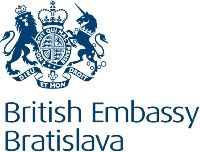Read the key results of the International Organization for Migration (IOM) in Slovakia achieved in the first half of 2016 in the field of integration of foreigners in Slovakia, assisted voluntary returns of migrants and their reintegration after the return home, counter-trafficking, resettlement of refugees and coordination of the European Migration Network activities.
Assistance to Foreigners in their Integration in Slovakia
In the first six months of 2016, 1,477 clients benefited from the services of the Migration Information Center IOM (MIC). MIC provided 2,072 consultations, 303 of them were provided in person, 794 through e-mail and 975 by phone at the MIC Helpline 0850 211 478. The MIC web page which contains information and guidelines regarding important areas of life and residence of foreigners in Slovakia was visited by 108 508 individual users during the same period.
MIC organizes language courses and courses of socio-cultural orientation for foreigners. These courses help to navigate foreigners in the important areas of life in Slovakia. The courses of the Slovak language were attended by 1,752 individuals and 158 participants were interested in the socio-cultural courses.
In May 2016, MIC celebrated 10 years of its successful work. By this time the Center had provided counselling, services and assistance to more than 16 thousand foreigners.
You can find more information on the MIC web page: www.mic.iom.sk.
Assistance to Migrants with Their Return and after Their Return Home
From January until the end of June 2016, IOM assisted 72 migrants who could not or did not want to stay in Slovakia and asked IOM for assistance. Most migrants returned to Iraq, Algeria and Ukraine. Number of migrants provided with IOM services during the voluntary return process to their country of origin has increased to 1,330 since 2004.
Through Assisted Voluntary Return and Reintegration Programme (AVRR), IOM assists migrants even after their return home. In the first half of 2016, IOM provided reintegration assistance worth 5,953.15 euros in total to 5 individuals or entire families who returned with IOM to Russia, Iran, India, Ukraine and Philippines. They used the support mostly for setting up small businesses that can generate important income for livelihood, for ensuring their basic living conditions, accommodation or education and improving qualification.
You can find more information about AVRR at www.avr.iom.sk.
How not to Become a Victim of Human Trafficking and Support for the Victims
In the first half of 2016 IOM launched a new website www.bezpecnecestovanie.iom.sk. The website is for those who want to travel or work abroad safely and want to avoid the risk of becoming the victim of human trafficking. Besides that IOM released two publications: an updated informative brochure How Not to Get Lost in the World and a training manual Prevention of Trafficking in Human Beings. The publications will be used in educational and other activities implemented by IOM in the field of counter-trafficking.
Since January 2016 IOM in cooperation with the Ministry of Interior of the Slovak Republic continues to participate in the pre-departure preparation of consular staff of Slovak embassies abroad in identification of victims of human trafficking. IOM also carries on provision of pre-departure assistance and services of assisted voluntary returns for victims of human trafficking.
More information on Counter-trafficking in Human Beings is available on the IOM web site.
Resettlement of Refugees through Slovakia to Their New Home
In the first half of 2016 IOM together with its partners transferred 148 refugees under the protection of the UN High Commissioner for Refugees (UNHCR) to Slovakia. They came from refugee camps in Eritrea, Lebanon and Yemen. The Slovak Republic provided the refugees with a temporary shelter. The refugees are accommodated in the Emergency Transit Centre (ETC) in Humenne where they are preparing for life in countries that will offer them a new permanent home.
During the same time IOM resettled 105 refugees to the United States. The resettled refugees had come to ETC in Slovakia in 2015 and 2016.
You can find more information about the humanitarian transfer of refugees and persons of concern to UNHCR through Slovakia on the IOM web site.
Coordination of the European Migration Network Activities
From January to June 2016 IOM as the coordinator of the European Migration Network (EMN) National Contact Point in the Slovak Republic has prepared three studies and answered to 43 ad hoc queries. A working breakfast on migration terms and actors working in the field of migration and international protection in Slovakia was organised for the press and communication units of the public administration. Beside of that, EMN together with the Bureau of Border and Alien Police of the Police Force Presidium organised for the bodies active in the lawmaking a small scale meeting on implementation of the national legislation in the field of legal and irregular migration of third country nationals.
More information available at: www.emn.sk.
Support of IOM Bratislava activities and projects:

Voluntary Return and Reintegration in Country of Origin (Individual Project).This project is co-funded by the European Union from the Asylum, Migration and Integration Fund (AMIF). Home Affairs Funds.
Migration Information Centre to Support Integration of Migrants in Slovakia (phase VIII, Individual Project). This project is co-funded by the European Union from the Asylum, Migration and Integration Fund (AMIF). Home Affairs Funds.

IOM activities in the field of counter-trafficking are financed by the Ministry of Interior of the Slovak Republic, which acts as a coordinating body of comprehensive care provided to the victims of trafficking.

The project Programme of Prevention of Human Trafficking – Web and Brochure and elaboration of a training manual Prevention of Trafficking in Human Beings was funded by the British Embassy in Bratislava.
The activities of IOM in this project are financed by the US Government through its USRAP Program – United States Refugee Admissions Program or by similar programmes of other resettlement countries. IOM vaccination activities are financed by the US Department of State and Department of Health and Human Services.

 Slovenčina
Slovenčina
 Українська (Україна)
Українська (Україна)
 English
English
